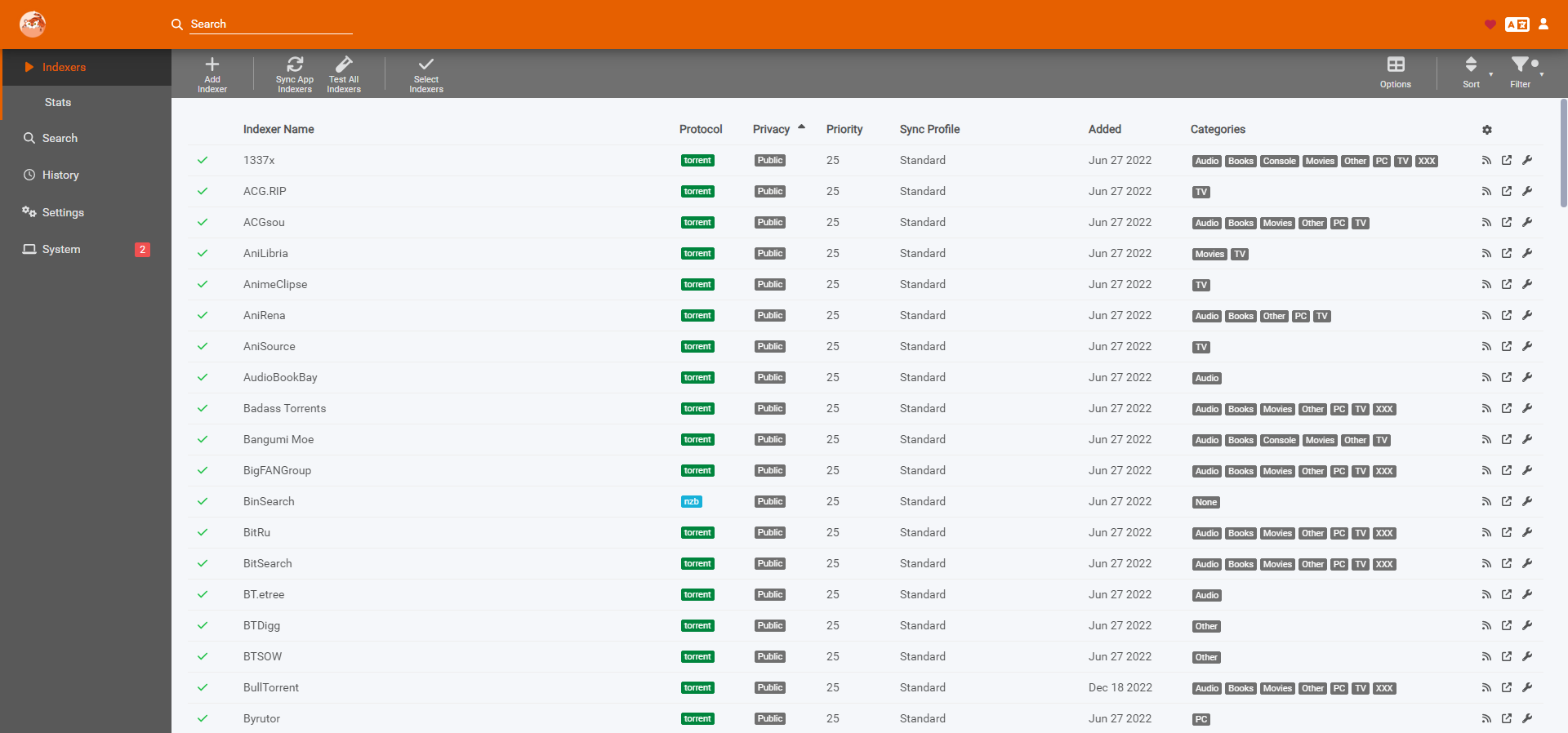

Please see our Servarr Wiki for installation instructions.
Download the Windows Installer with the following link and execute it.
Download Windows x64 Installer Download Windows x86 InstallerIt is possible to install Prowlarr manually using the x64 .zip download. However in that case you must manually deal with dependencies, installation and permissions.
The Arch Linux User Repository offers a prowlarr package that can be installed manually or using your favorite AUR helper.
An aur helper can install prowlarr and its dependencies easily, or follow the AUR Installing Packages wiki for manual installation.
For example, to use yay to install the prowlarr package:
yay -S prowlarr-binsudo systemctl daemon-reload
sudo systemctl enable --now prowlarr
Browse to
http://localhost:9696
to start using Prowlarr.
It is possible to install Prowlarr manually from upstream using the .tar.gz download. However in that case you must manually deal with dependencies, installation and permissions.
You can follow the Docker guide to install Prowlarr as a Docker container instead.
Please see our Servarr Wiki for installation instructions. Link
Generic .tar.gz downloads are available for linux, but dependencies, installation and permissions will need to be done manually.
The easiest way to install Prowlarr on macOS is to use the App archive with the steps described below.
Open the archive and drag the Prowlarr icon to your Application folder.
Self-sign Prowlarr:
codesign --force --deep -s - /Applications/Prowlarr.app && xattr -rd com.apple.quarantine /Applications/Prowlarr.appOpen Prowlarr.app in your Application folder.
Browse to
http://localhost:9696
to start using Prowlarr.
It is possible to install Prowlarr manually using the Intel .tar.gz download or Arm .tar.gz download However in that case you must manually deal with dependencies, installation and permissions.
You can follow the Docker guide to install Prowlarr as a Docker container instead.
A generic download is available for linux, but dependencies, installation, and permissions will need to be done manually.
Download Linux .tar.gz
The Prowlarr team does not offer an official Docker image. However, a number of third parties have created and maintain their own.
These instructions provide generic guidance that should apply to any Prowlarr Docker image.
Permissions and ownership of files is one of the most common problems for Prowlarr users, both inside and outside Docker. Most images have environment variables that can be used to override
the default user, group and umask, you should decide this before setting up all of your containers.
The recommendation is to use a common group for all related containers so that each container can use the shared group permissions to read and write files on the mounted volumes.
Keep in mind that Prowlarr will need read and write to the download folders as well as the final folders.
For a more detailed explanation of these issues, see The Best Docker Setup and Docker Guide wiki article.
To install and use these Docker images, you'll need to keep the above in mind while following their documentation. There are many ways to manage Docker images and containers too, so installation and maintenance of them will depend on the route you choose.
hotio
doesn't specify any default volumes, besides
/config. Images are automatically updated multiple times in an hour if upstream changes are found. Hotio also builds our Pull Requests which may be useful for testing.
Read the
instructions
on how to install the image.
linuxserver.io
is one of the most prolific and popular Docker image maintainers. They also maintain images for most of the popular download clients as well.
LinuxServer specifies a couple of optional default volumes such as
/movies
and
/downloads. The default volumes are not optimal nor recommended. Our recommendation is to use a single volume for the data, as mentioned above.
The Prowlarr team provides
builds for BSD and the BSD Community creates the Port.
Please see our Servarr Wiki for installation instructions.
Link